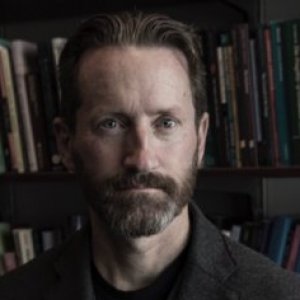 Is there still beauty to be seen during tough times?
Is there still beauty to be seen during tough times?
Brian Treanor, professor of philosophy, environmental studies and Irish studies at Loyola Marymount University, examines the world to see.
Brian Treanor is Charles S. Casassa Chair and Professor of Philosophy at Loyola Marymount University. He holds affiliate appointments in Environmental Studies and Irish Studies. His interdisciplinary teaching and scholarship explore a wide variety of areas, with particular emphasis on environmental philosophy, ethics, and philosophy of religion. He is the author or editor of eight books and many articles and book chapters, as well as the founding co-editor of Fordham University Press’ Groundworks: Ecological Issues in Philosophy and Theology.
Melancholic Joy
William James wrote, “in the deepest heart of all of us there is a corner in which [we suspect that] the ultimate mystery of things works out sadly.” Reflecting on the past year, one could be forgiven for coming to the conclusion that he was right. The COVID-19 pandemic. Accelerating anthropogenic climate change. Resurgent forms of prejudice and xenophobia. It’s a hard time to be an optimist. However, if the last year has shown us anything, it’s that beauty, wonder, and joy are irrepressible. Against the somber backdrop of economic uncertainty, political crisis, and a steady drumbeat of infections, hospitalizations, and deaths, the seasons turned, each ushering in its own form of beauty. For a moment, the skies and waterways cleared, the drone of production was silenced, and nature flourished in a world in which human pressure was felt more lightly. People fell in love. Babies were born. Of course, none of that erases or makes up for the tragedy; but it does suggest that pessimism is also a misreading of things.
What, then, is the answer?
Scholars advance theories as to what distinguishes humans from the other beings with whom we share this strange and wonderful world. Is it reason? Language? Laughter? Sin? Here’s a thought. All beings seek to avoid threats and escape pain; but the brutal indifference of the world seems to strike us with particular force, as an offense. Likewise, all beings have interests, desires, and goals. We, however, have the capacity to appreciate the beauty of the world and to give thanks for the incomparable gift that we were here to witness it. This, then, is the human watermark, and our vocation: not simply to experience pleasure or pain, joy or sorrow; but to hold these contradictory experiences together in a paradoxical tension both joyful and melancholic, to fully appreciate both the tragedy and the splendor of existence.


Comments
4 responses to “Brian Treanor, Loyola Marymount University – Melancholic Joy”